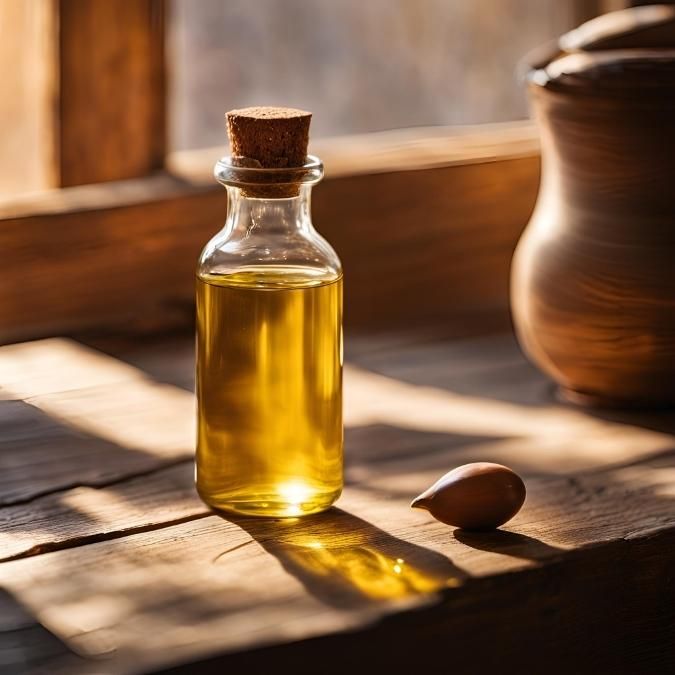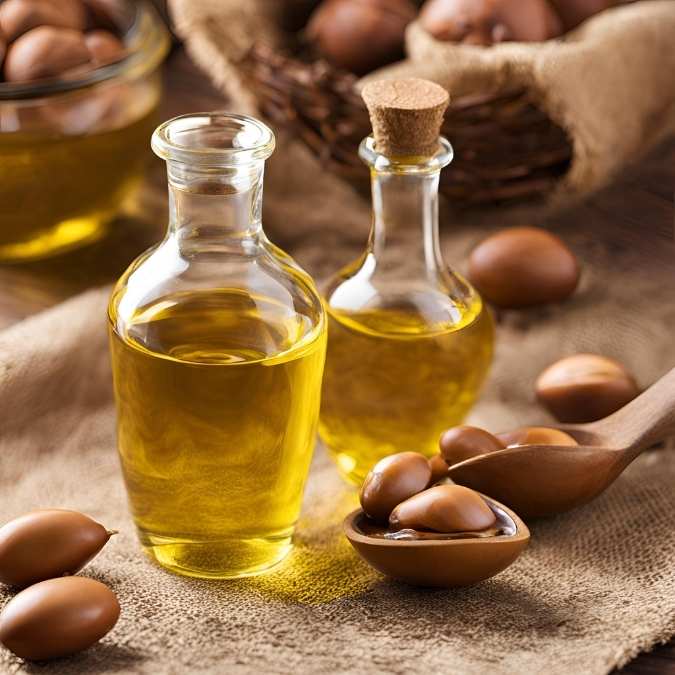Argan oil, often referred to as “liquid gold,” is a natural oil extracted from the nuts of the argan tree (Argania spinosa), which is native to Morocco. This oil has a long-standing significance in Moroccan culture and has gained global recognition for its culinary, cosmetic, and medicinal uses. In this exploration of argan oil, we will delve into its history, production methods, nutritional benefits, and contemporary applications.
Historical Context
The argan tree has been part of the Moroccan landscape for centuries, thriving in the harsh conditions of the southwestern region. The Berber people, who have inhabited this area for generations, have been the primary custodians of the argan tree. Archaeological evidence suggests that the use of argan oil dates back to ancient times, where it was utilized for its nutritional properties, as well as for skincare and medicinal purposes.

Historically, argan oil was primarily used by Berber women in their daily routines. They would use it for cooking, as well as for cosmetic purposes, to moisturize their skin and hair. The process of extracting oil from the argan nut was labor-intensive, and it became a communal activity among women, reflecting their social and cultural ties.
Production Process
The production of argan oil is a meticulous and time-consuming process. The nuts are harvested from the argan tree, usually between June and August. Once collected, the outer pulp is removed to reveal the hard nut inside. This nut is then cracked open to extract the edible seeds, which are roasted for culinary oil or left raw for cosmetic oil.
The traditional method involves grinding the roasted seeds into a paste using a stone mill. Water is then added, and the mixture is kneaded until the oil separates. This oil is collected, filtered, and stored. This artisanal process has been passed down through generations and is vital for maintaining the quality and flavor of the oil.
In recent years, there has been a surge in demand for argan oil, leading to the establishment of cooperative societies where Berber women work together to produce and market the oil. This not only empowers women economically but also promotes sustainable practices in argan tree management.
Nutritional Benefits
Argan oil is renowned for its health benefits, thanks to its rich nutritional profile. It is high in monounsaturated fatty acids, particularly oleic acid, which is known to promote heart health. Additionally, argan oil contains significant amounts of vitamin E, an antioxidant that protects cells from oxidative damage and supports skin health.
- Heart Health: The monounsaturated fats in argan oil can help lower bad cholesterol levels and reduce the risk of cardiovascular diseases. Incorporating argan oil into a balanced diet may contribute to overall heart health.
- Skin Health: The vitamin E content in argan oil not only acts as an antioxidant but also aids in skin hydration. It can help treat conditions such as eczema and psoriasis and is often used in cosmetic products for its moisturizing properties.
- Weight Management: Some studies suggest that incorporating healthy fats, like those found in argan oil, can promote a feeling of fullness, potentially aiding in weight management when used as part of a balanced diet.
Culinary Uses
In Moroccan cuisine, argan oil is used in a variety of dishes. The roasted version adds a nutty flavor to salads, couscous, and tagines. It is also used as a finishing oil for drizzling over dishes, enhancing both flavor and nutritional value. Traditionally, it is served with bread, allowing diners to enjoy its rich taste and health benefits.
Internationally, argan oil has gained popularity as a gourmet ingredient. Chefs appreciate its unique flavor and versatility, incorporating it into a range of dishes from dressings to marinades. The oil’s health benefits have made it a sought-after ingredient in health-conscious cooking.
Cosmetic and Medicinal Applications
Beyond the kitchen, argan oil is a staple in the beauty industry. Its moisturizing properties make it a popular ingredient in skincare products, including lotions, serums, and oils. It is often touted for its ability to hydrate the skin, reduce the appearance of wrinkles, and improve overall skin texture.
For hair care, argan oil is celebrated for its nourishing and smoothing properties. It can help tame frizz, add shine, and protect against damage from heat styling. Many hair products, including shampoos and conditioners, now feature argan oil as a key ingredient.
In traditional medicine, argan oil has been used to treat various ailments, including skin irritations and joint pain. Its anti-inflammatory properties may contribute to its effectiveness in these applications, although scientific research is ongoing.
Sustainable Practices and Economic Impact
The rise in demand for argan oil has prompted a focus on sustainable harvesting practices to protect the argan tree and its ecosystem. Efforts have been made to prevent overharvesting and promote reforestation. The establishment of women’s cooperatives has also played a crucial role in empowering local communities, providing them with a source of income while preserving traditional practices.
The economic impact of argan oil production extends beyond individual cooperatives. It has become a significant contributor to Morocco’s economy, attracting international attention and investment. As consumers become more aware of the benefits and origins of their products, the demand for ethically sourced argan oil continues to grow.
Conclusion
Argan oil stands as a testament to the rich cultural heritage of Morocco and the resourcefulness of the Berber people. From its historical roots to its modern applications, argan oil has proven to be much more than a culinary ingredient; it embodies a lifestyle that values health, sustainability, and community. As global interest in natural and organic products continues to rise, argan oil is likely to maintain its status as a beloved and valuable commodity on the world stage. Whether used for cooking, skincare, or hair care, argan oil remains a symbol of Morocco’s natural wealth and the enduring wisdom of its people.

